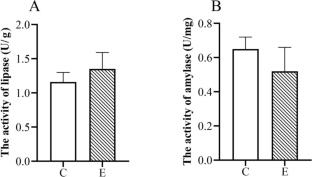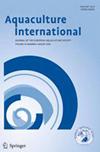Dietary allicin improves behavior, regulates intestinal microbial colonies, and improves behavioral resistance to handling stresses in the sea cucumber Apostichopus japonicus at high temperature
Abstract
The purpose of this study was to investigate the effects of allicin on behavior, intestinal health, and behavioral resistance to handling stress in sea cucumbers in summer. Behavioral analysis found that 3% dietary allicin significantly improved crawling and feeding behaviors of sea cucumbers without affecting their food choices in summer. We used 16S rRNA gene sequencing to analyze the intestinal microbiota of sea cucumbers. Alpha diversity showed no significant difference between sea cucumbers fed with and without allicin. Bacteroidetes and Firmicutes were more abundant in the intestinal tract of sea cucumbers fed with allicin diet, with a fourfold increase in Firmicutes-to-Bacteroidetes ratio, compared to the diet without allicin. This indicates that allicin does not influence species diversity or richness of intestinal microorganisms, but changes the structure of the microorganisms. This study showed that crawling and feeding behaviors of sea cucumbers fed with allicin were significantly higher than those of sea cucumbers fed without allicin under air exposure. This is probably attributed to the decreased oxidative impacts of handling stress on sea cucumbers fed with dietary allicin. We provided a cost-effective method to improve crawling and feeding abilities, to regulate intestinal microbial colonies, and to enhance behavioral resistance to handling stresses in sea cucumbers in summer. We suggest aqua-farmers incorporate 3% allicin into feed to reduce harms caused by high temperature and handling stresses.


 求助内容:
求助内容: 应助结果提醒方式:
应助结果提醒方式:


